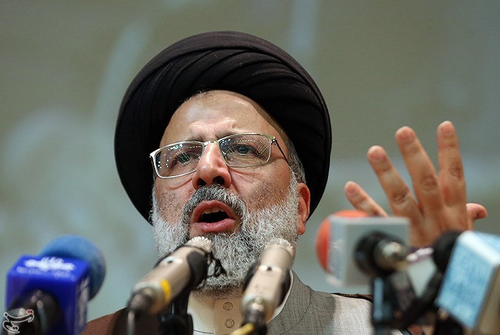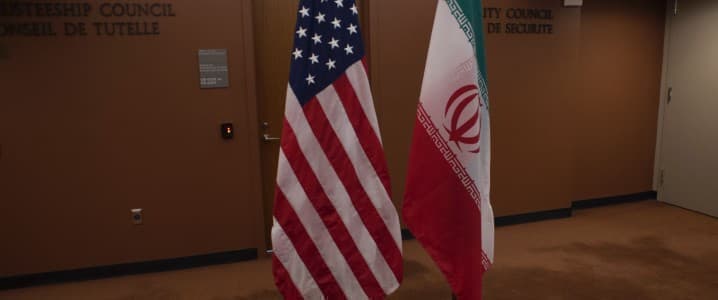With new president Ebrahim Raisi now in office, Iran says it's ready to resume JCPOA nuclear talks with world powers in Vienna, which includes indirect negotiations with the United States.
The prior sixth round of talks had concluded on June 20, and have since been stalled with prior speculation that the seventh would continue by mid-August. But that doesn't look to happen either, with the Associated Press now citing EU officials familiar with the talks saying the expectation is for a resumption of talks in September.

The Biden administration has previously called it "an urgent priority" to get Iran back to the table at talks which have been taking place at a hotel in Vienna. Iran had pushed back to the talks until after the hardline cleric Raisi entered office, resulting in French and German accusations that Tehran was stepping back from the talks.
EU officials familiar with the situation say that they’ve been told Iran’s new Raisi government is ready to restart the nuclear talks in Vienna, which had been put on hold pending the inauguration, resulting in some European leaders charging Tehran with backing away from talks. Both sides have since accused the other of stalling.
It's also as yet unclear who on the Iranian side will be heading up the talks. The Times of Israel suggests the following based on a top European official:
The senior official, speaking on condition of anonymity, said the EU’s negotiator on the file, Enrique Mora, attended Raisi’s swearing-in in Tehran last Thursday and spoke with the Iranian official designated to take charge of the nuclear talks, Hossein Amir-Abdollahian. He is the former deputy foreign minister for Arab and African Affairs in Iran’s Ministry of Foreign Affairs.
Amir-Abdollahian "is supposed to be the new foreign minister" in Raisi’s cabinet, but that has not yet been announced, the EU official said.
The consistent position of Iran in the talks has been that Washington must immediately drop the Trump-era sanctions in order to return to the JCPOA nuclear deal. Only then will Tehran in turn reduce its uranium enrichment capacity.
Nine members of the European Parliament sent a letter to the EU foreign policy chief, Josep Borrell, blasting the decision to send a senior EU diplomat to #Iran for the inauguration of Iranian President Ebrahim Raisi.https://t.co/CCyll45Mlo
— Jason Brodsky (@JasonMBrodsky) August 9, 2021
In the meantime the 'tanker wars' between Israel and Iran appear to be back in full force. US Secretary of State Antony Blinken is currently demanding "accountability" for alleged Iranian attacks on the Mercer Street tanker off Oman late last month and the brief hijacking of the Asphalt Princess in Gulf waters last week. The new comments come after a week ago he vowed a "collective response" for the Israeli-managed Mercer Street drone attack, which British and Romanian crew members dead.
The longer that Vienna talks fail to resume, the more the likelihood of a sabotage event or direct conflict between Iran and Israel (or Western allies) remains, which could shut down talks permanently.
By Zerohedge.com
More Top Reads From Oilprice.com:
- Cheap Natural Gas Is A Thing Of The Past
- Trouble Is Brewing At The World’s Largest Copper Mine
- High Service Costs: The Reality Of Owning An EV



















Without the United States agreeing first to lift the sanctions, Iran won’t even negotiate with the Biden administration. On the other hand, the United States won’t lift the sanctions without Iran agreeing to renegotiate the nuclear deal and therein lies the problem.
From the United States’ point of view and its allies’, renegotiating the deal means Iran’s relinquishing its nuclear and ballistic missile development programmes which Iran will never do.
The positions of Iran and the United States are irreconcilable. That is why a lifting of US sanctions against Iran won’t see the light of day soon or ever.
Dr Mamdouh G Salameh
International Oil Economist
Visiting Professor of Energy Economics at ESCP Europe Business School, London